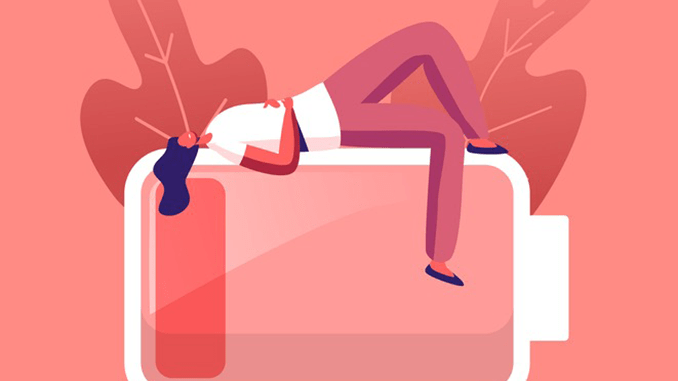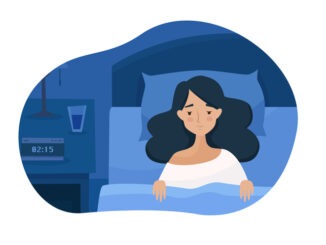
Working in a healthcare environment can be physically, mentally and emotionally challenging – how can practices support their staff to manage cases of fatigue and sleep deprivation?
Sleep is an essential function that allows our bodies and minds to recharge and process what we have done in the day. It is fundamental to every aspect of our physical and mental health, allowing us to feel refreshed, alert and able to function at our best. Not getting enough sleep or rest can have significant consequences – it can hinder our ability to function effectively and can make us more irritable, have less patience and less empathy. Our thinking and reaction times slow down, we are more sluggish, and less able to cope with high-pressure and high-consequence situations.
Fatigue does not just impact negatively on an individual’s health because, as tiredness increases, the ability to deliver safe, effective and efficient care drops sharply and increases the risk to patient safety. From a physical health perspective, sleep deprivation increases the risk of developing diseases such as obesity, type two diabetes, cardiovascular disease, anxiety, depression and Alzheimer’s disease.
Fundamentally, if staff are not looked after, they cannot look after patients. The busier it is, the more crucial it becomes to take breaks and rest, as staff need to be able to perform at their best if pressure is high. Here are some key statistics:
- There are 207,000 working days lost in the UK every year to insufficient sleep.
- The annual cost of lost sleep to the UK stands at around £50bn.
- A survey from the Royal College of Nursing showed that 59% of respondents did not get to take sufficient breaks on their last shift.
- This survey also showed that 69% of nursing staff do not take breaks, compared to 56% of hospital staff generally.
- In the 2021 NHS Staff Survey, over 21% of respondents indicated that they often or always felt that every working hour is tiring for them.
- Working night shifts has about 25-30% higher risk of injury than working day shifts; this is also the case for working 12-hour shifts compared to eight-hour shifts.
- Surveys of healthcare workers, such as this one by the Association of Anaesthetists, show that more than half of respondents have experienced a near miss when driving home after a night shift.
- Nearly 75% reported effects on physical health or psychological well-being, and more than two-thirds reported effects on personal relationships.
What employers are doing
NHS staff are employed on a variety of working practices and patterns, which can be demanding and tiring. Factors such as workforce issues and rota gaps can add further challenges, with badly-designed shift patterns also having a negative impact on staff health. This can increase sickness absence rates, presenteeism, increased errors at work and patient safety incidents.
The NHS is committed to promoting staff health, safety and wellbeing, with the NHS People Plan calling for organisations to have safe spaces for staff to rest and recuperate. However, lack of access to basic wellbeing needs such as hydration and sleep have been identified as a major concern for NHS staff wellbeing and patient safety. Looking after staff is a key professional responsibility, and individuals should not be made to feel guilty for taking time to look after themselves; if we don’t look after our staff now, many more will become ill and leave the profession.
The NHS back to basics for a healthy working environment infographic includes statistics and key facts about the impact of hydration, nutrition, sleep and regular breaks on workforce wellbeing, and the Supporting the wellbeing needs of NHS staff guidance encourages NHS health and wellbeing leads and managers to prioritise and fulfil their staff wellbeing needs. The NHS Staff Council’s health, safety and wellbeing Group has also developed guidance to support NHS organisations to improve their provision of staff welfare facilities.
What employees can do
Working on getting a good night’s sleep is the responsibility of the individual. Achieving this requires good sleep routines, environments and habits that we can all put in place, such as exercising, a good diet, and limiting exposure to electronics, social media or the news before bed. Incorporating time to relax and unwind into daily routines can also help reduce the effects of stress, and finding helpful strategies and techniques is essential. Apps such as Headspace and Unmind being fantastic tools to help manage our own health and wellbeing, and they are currently free to access for NHS staff until the end of 2023.
Developing healthy habits at bedtime is especially helpful if you want to get a good night’s sleep. Here are a few tips to share with your staff in order to help them improve their sleep:
- develop a consistent routine for bedtime and wake time;
- use your preferred relaxation techniques, particularly in the last hour before bed;
- before bedtime, write a to-do list for tomorrow to get things out of your head;
- reduce your use of electronic screen devices in the hour before bedtime, and remove screens from your bedroom;
- make your bedroom as quiet, dark and comfortable as possible;
- get as much natural light exposure as possible, especially first thing in the morning, to keep your body clock ‘in sync’;
- stick to a regular exercise routine as much as possible;
- eat regular, healthy meals, and stay hydrated;
- limit the use of caffeine and alcohol, especially closer to bedtime.


Be the first to comment